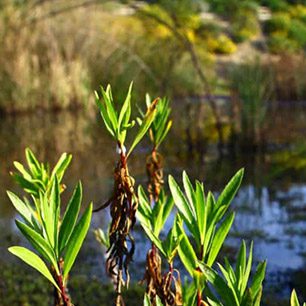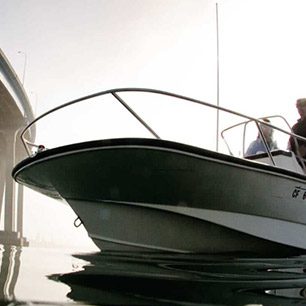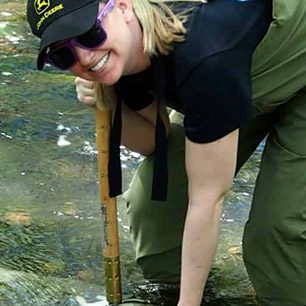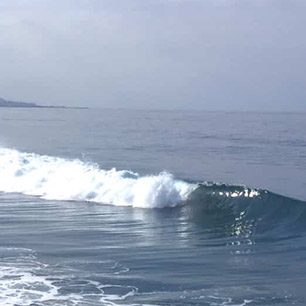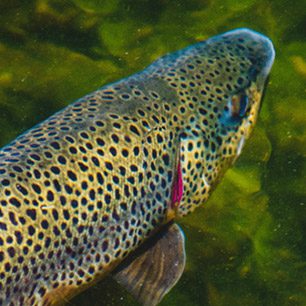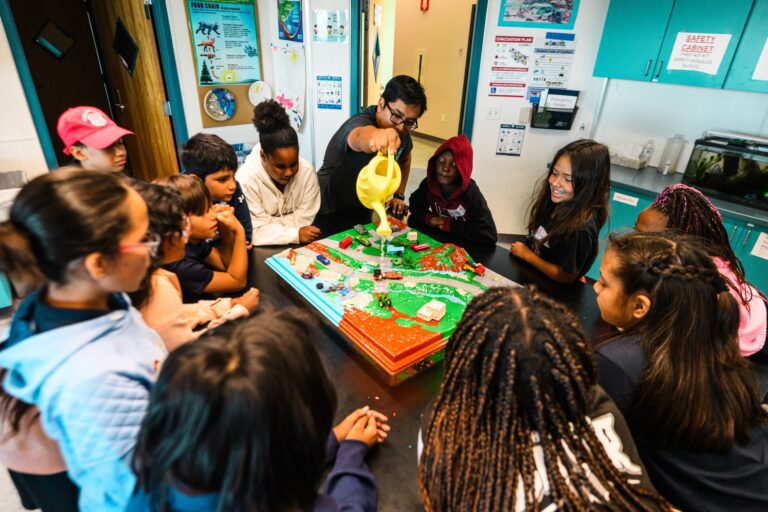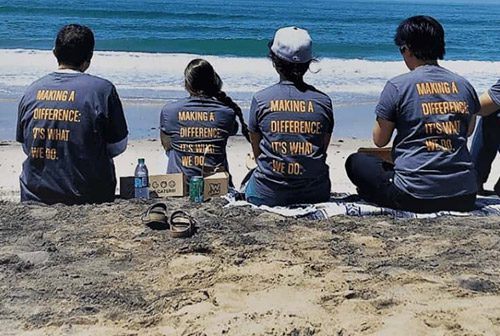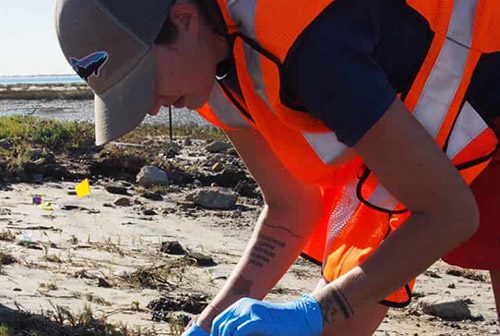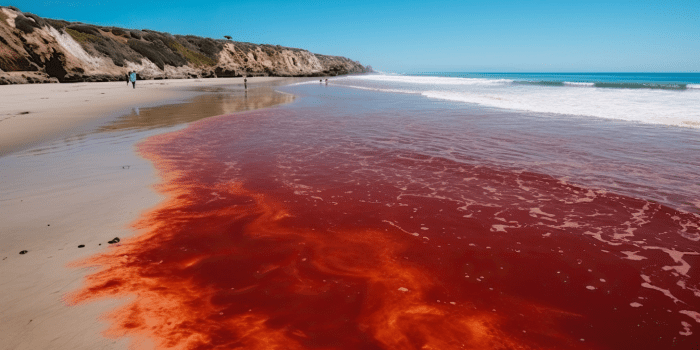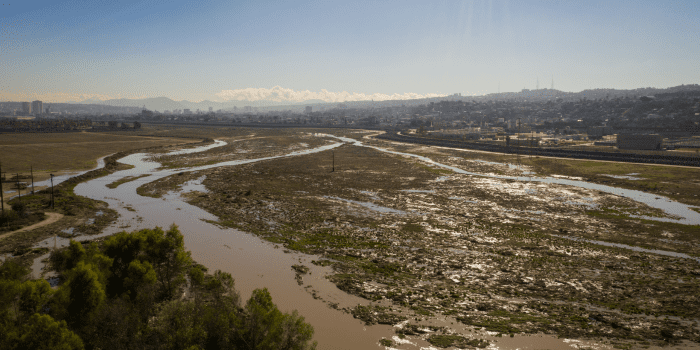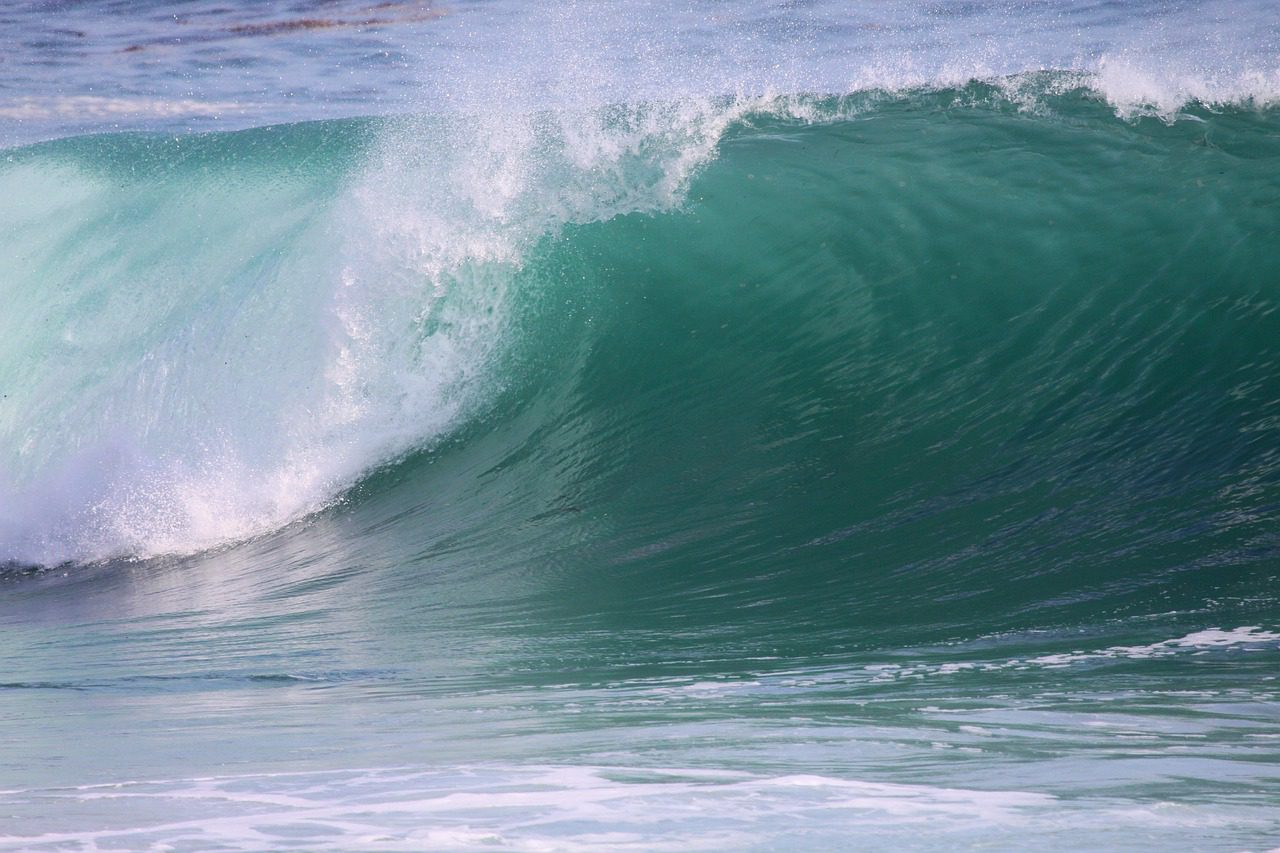Ever wonder about that fresh and clean “just after it rains” feeling?
It seems to feel the most refreshing after the first big rainstorm of the year, when months of accumulated dust particles and leaves are washed away from paved surfaces to the vast underground network of storm drains.
San Diego’s rainfall patterns are such that we typically go about five months without a major rain storm, so as you can imagine there is quite a layer formed on our roofs, streets, and in stagnant pools near storm drains. Unfortunately, the bacteria, trash, and other pollutants carried with the rain water are at high enough levels that we can’t even swim, surf or play in the water for three days after the storm. Welcome to the first flush.
To stormwater monitorers, “major” is anything that registers over one quarter of an inch of rain. That one quarter of an inch is just enough to really get trash moving, to raise the plastics, cigarette butts, food wrappers, Styrofoam, and soccer balls from their temporary resting places and transport them a little closer to their final resting place in the bay or ocean. It’s marine debris in the making. And as Travis describes in his blog post, it’s coastal pollution and beach closures in the making as well.


But what can we do to prevent this flush from being so impactful? I have a few ideas:
- Don’t litter, intentionally or unintentionally. This is a no-brainer for most of us. But it also includes every little piece of wrapper and cigarette butt. Pack it in, pack it out.
- Participate in cleanup events each fall. Coastal Cleanup Day in September, and Tijuana River Action Month through October, are important efforts which span the period between summer tourist season, bird nesting season and the first rain.
- Organize your own cleanup in your neighborhood streets and canyons. Coastkeeper’s Cleanup in a Box Program helps you do just that and gets us important data to aid marine debris reduction advocacy efforts.
- Help with Coastkeeper’s plastic foam outreach to restaurants to get less take out Styrofoam in our waterways. Always sign petitions and action alerts for better policy.

